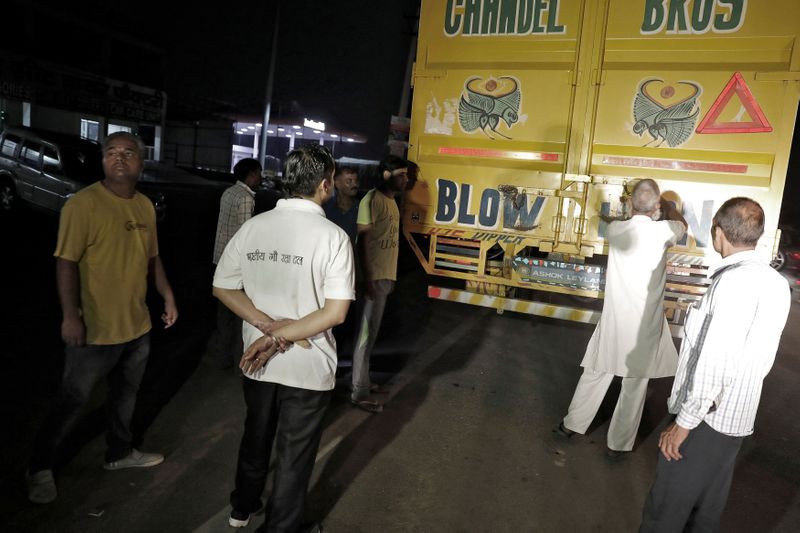By Saurabh Sharma
LUCKNOW, India (Reuters) - More than half the arrests this year under a tough national security law in India's most populous state of Uttar Pradesh have involved suspects in cases of cow slaughter, data showed.
The northern state has used the National Security Act (NSA), which allows for those deemed a threat to national security to be detained without charge for up to a year, almost 140 times in the first eight months of the year.
"The NSA has been invoked in 139 cases across Uttar Pradesh, of which 76 have been against the slaughter of cows," Awanish Awasthi, a top state official, said in a statement.
The figure, for the year to August 18, was first reported by the Indian Express newspaper on Friday.
The cow is considered sacred by India's Hindu-majority population, and most states, including Uttar Pradesh, have laws against slaughter of the animals.
Vigilante attacks on those accused of killing the animal for meat, often people belonging to the tiny Muslim minority, are common.
Uttar Pradesh Chief Minister Yogi Adityanath has repeatedly urged use of the NSA to combat law and order issues in the state of more than 200 million people.
The Hindu monk is a high-profile figure in Prime Minister Narendra Modi's Bharatiya Janata Party.
The NSA, which Indian rights activists have described as draconian, is also frequently used in the contested region of Kashmir to detain people suspected of separatist activity.

"In many cases the charges of NSA are dropped because the authorities fail to prove it in court," said Irfan Ghazi, a lawyer based in the state's city of Aligarh, who has defended clients held under the act.